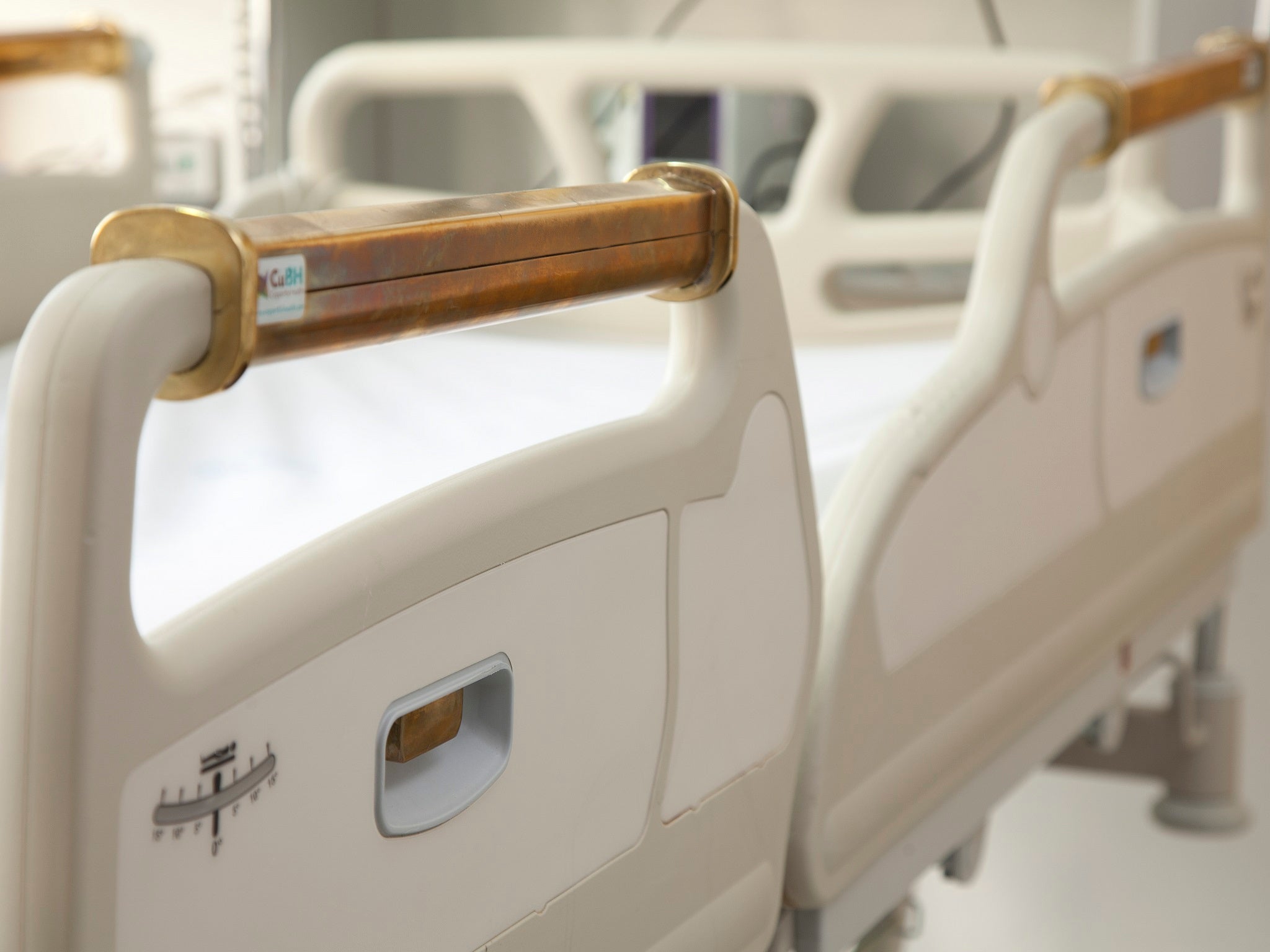Copper in hospitals proven to 'contact kill' bugs and viruses causing MRSA and pneumonia
Copper is known to kill bugs, viruses and bacteria on contact

Bed-rails made out of copper could help cut back on the risk of transmitting or picking up potentially-fatal infections while in hospital.
The natural antimicrobial material was confirmed by researchers to wipe out bacteria, yeasts and viruses on contact and a science journal cites an ancient Egyptian medical text, written around 2600-2000 BC, that states copper was used to sterilise wounds and drinking water.
As bed-rails are at risk of carrying infections, a research group with start-up company Copper BioHealth has used copper ones in hospitals in Chile however they have yet to assess their effectiveness.
Constanza Correa, director of operations for the firm, told National Public Radio in the US: “Healthcare-acquired infections are a huge problem. People come to the hospital with a sickness, and they get another one in the hospital.”
Around 150 beds in Chile have copper rails, however the material is also said to be suitable for tables, sinks, IV poles and even mattress covers with the metal woven through them. According to NPR, five per cent of patients in industrialised countries contract an infection in hospital while the number is three times more in developing nations.
“Hospitals should be safer. Copper kills everything. Why wouldn't you use it? It has so much sense for people,” she added.
A small US study of 614 patients shows that the number of infections fell from 8.1 percent in regular rooms to 3.4 percent in the rooms with copper.
A total of 378 reported cases of MRSA have been logged between October 2013 and October this year in England alone, according to statistics by MRSA Action UK. Also known as the superbug, it can cause skin infections and even blood poisoning and fatal inflammation of the inner lining of the heart called endocarditis.
Join our commenting forum
Join thought-provoking conversations, follow other Independent readers and see their replies
Comments